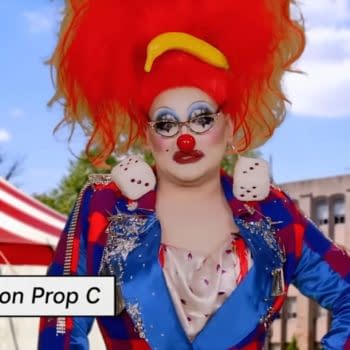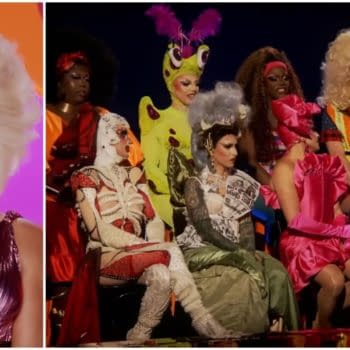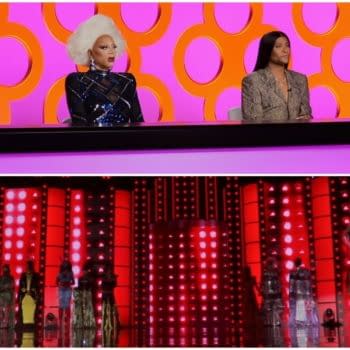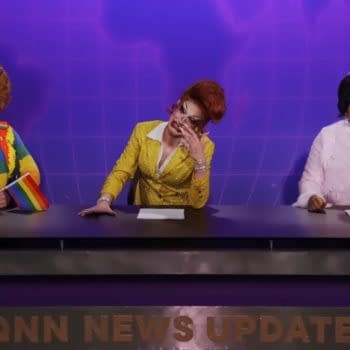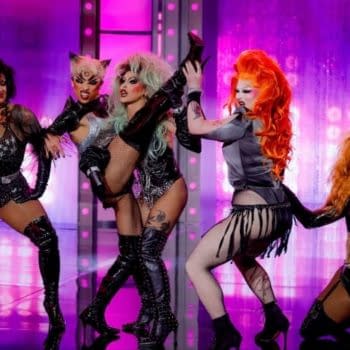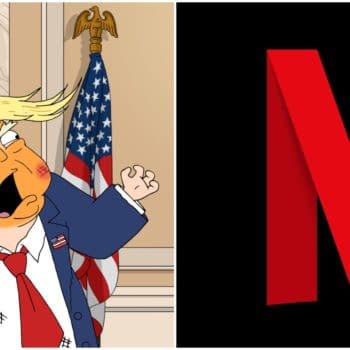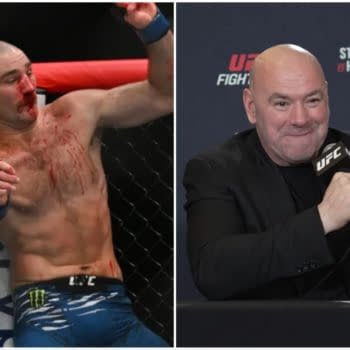Posted in: Shudder, streaming, TV, YouTube | Tagged: Attack of the Queerwolf, bryan fuller, cable, child's play, Chilling Adventures of Sabrina, don mancini, hannibal, Jordan Crucchiola, Lachlan Watson, Nay Bever, sdcc, shudder, streaming, television, tv
Shudder SDCC Panel "Horror is Queer" Looks at LGBTQ Film History
The horror genre has always been queer, but right now it's more visible than ever with representation both in front of and behind the camera – but that doesn't mean the community doesn't still have a ways to go in terms of positive representation and narratives. With Shudder's upcoming queer horror documentary, this proverbial round table discussion is more relevant and interesting than ever.
What is queer horror? That can be broken down four ways (according to director Sam Wineman): explicit representation, queer coding (whether intentional or not), queer ownership (or where the queer community sees themselves reflected in horror), and just having a queer creator. Even when queer creators are telling straight stories, the creator still imbues the art with their unique voice as a queer creative.

Panel moderator and writer Jordan Crucchiola brings up fantastic points of queer horror media and facilitates the discussions through representation, the evolution of queer storytelling, and creating spaces for queer creatives and amplifying their voices now more than ever.
Chilling Adventures of Sabrina actor Lachlan Watson brings their perspective as a non-binary actor, especially in regards to casting and playing the token queer character. "It's this box that we have of queer actors, queer people, queer creators can only create queer art and that's something that I think is worth breaking down because there's so much more to it than that."
Hannibal creator and showrunner Bryan Fuller talks about how he started writing Will Graham and Hannibal Lector as straight men falling in love with each other, but then shifted to a more queer narrative after the fans projected their queer-ness onto it and had him taking a long look at the more one-sided queer romantic dynamic to their relationship and interactions. "The material, the actors, the community receiving the show all spoke to the queerness of it and it was hard to ignore. In an attempt to be as authentic as possible, what came through the authenticity was a queerness."
Nay Bever hosts the Blumhouse podcast Attack of the Queerwolf and talks about reclaiming queer representation from the monsters and villains. The podcast covers a film per episode, so she's seen a lot of horror movies and has a unique perspective as a queer black woman in the world of horror. "If queer and or trans folks want or do see themselves in something, then it's ours. Period. I think any community that is marginalized and experiences the death rates and death threats that we do, we are absolutely 100% allowed to find ourselves wherever we can."
Wineman talks about representation and how it's not a one size fits all solution to a decades-old Hollywood problem. "Why don't I have the type of representation I would like to see? … We need to bring everybody with us and where I'm standing now … and I think it's really important that as a community it's important to look around and we say 'it isn't enough." He also discusses the duality of one person feeling completely seen by a character or representation while someone else looks at the same character and feel that it's not okay.
Don Mancini, writer and director of the Child's Play franchise, mentions how he didn't consciously make any of the Chucky films queer or "intentionally gay" until he realized with Bride of Chucky that it was something he could do. He cast gay characters and the films since "have just gotten gayer and gayer" and as he and the franchise have grown and aged, he's made a conscious effort to want to make his franchise be specifically gay to reflect himself and his community.
Representation matters, especially in a community as diverse as the queer community, and horror has been historically queer in both ideology and execution, though it hasn't always been quite so visible about showing it overtly. Shudder's documentary is expected out on the streaming service this summer.



